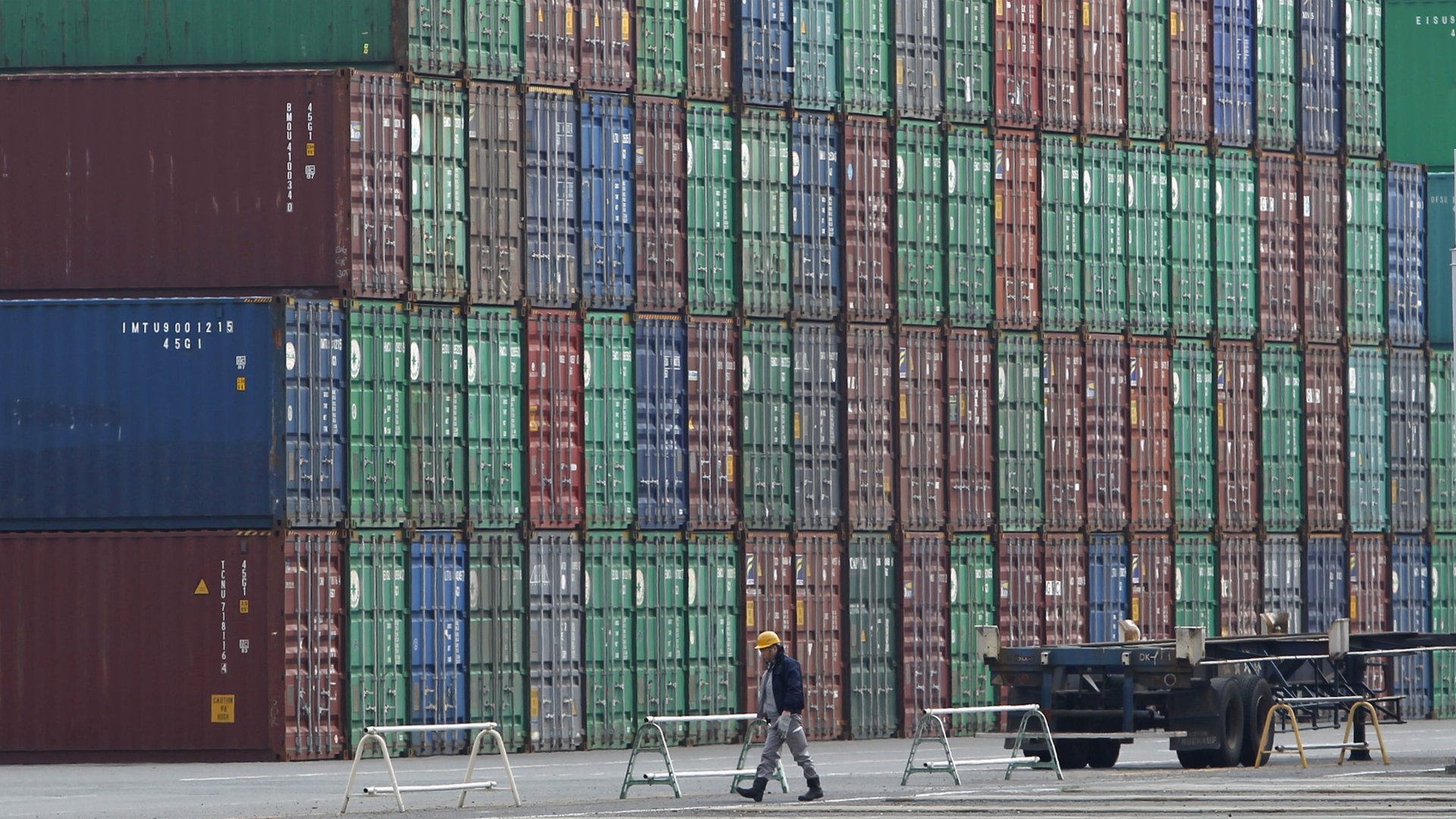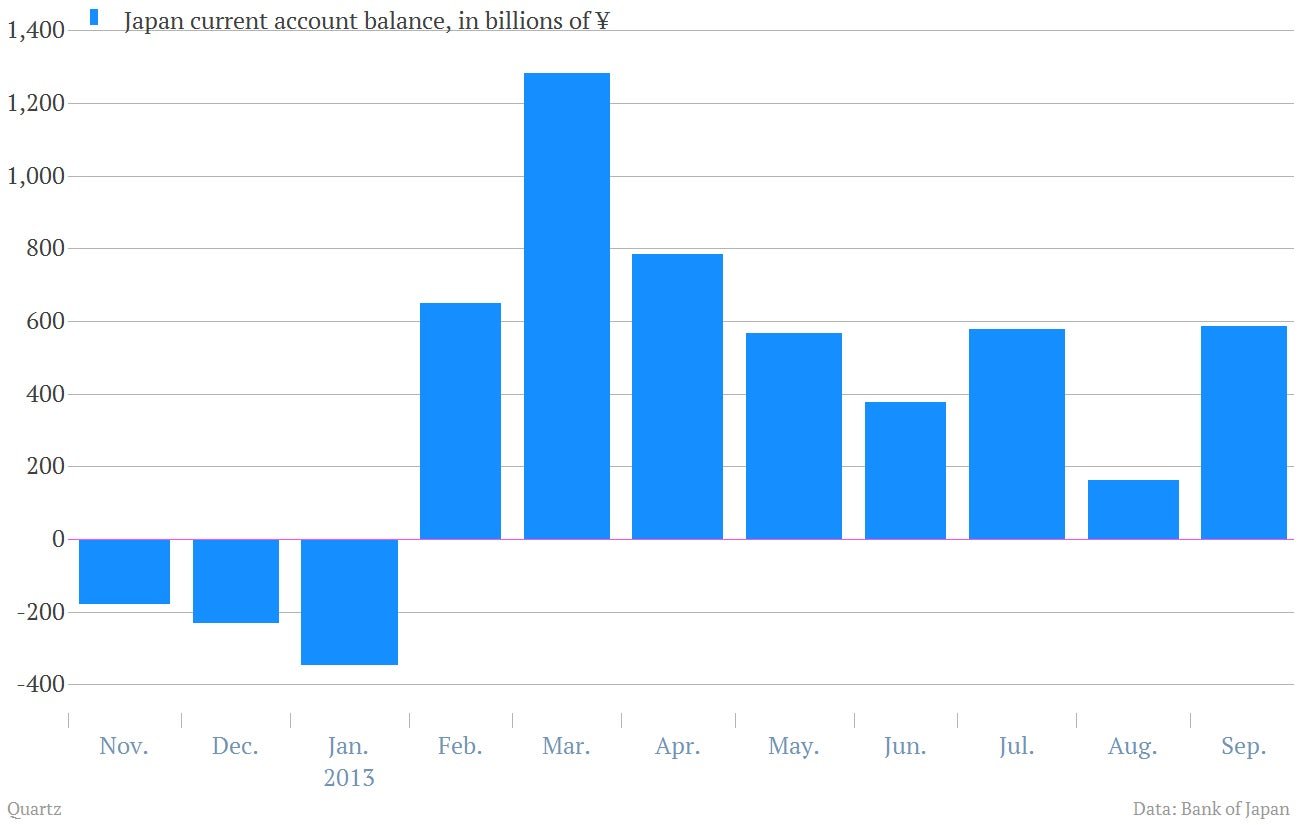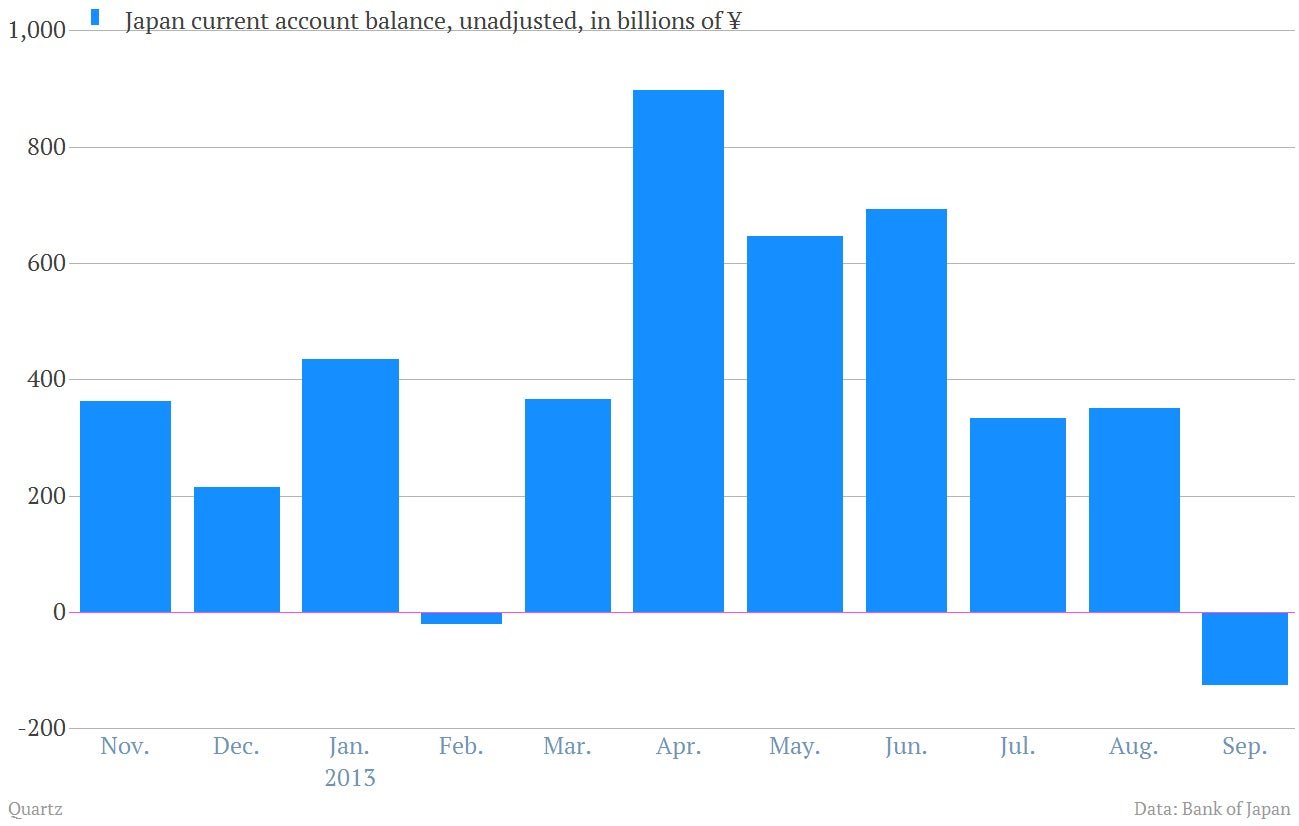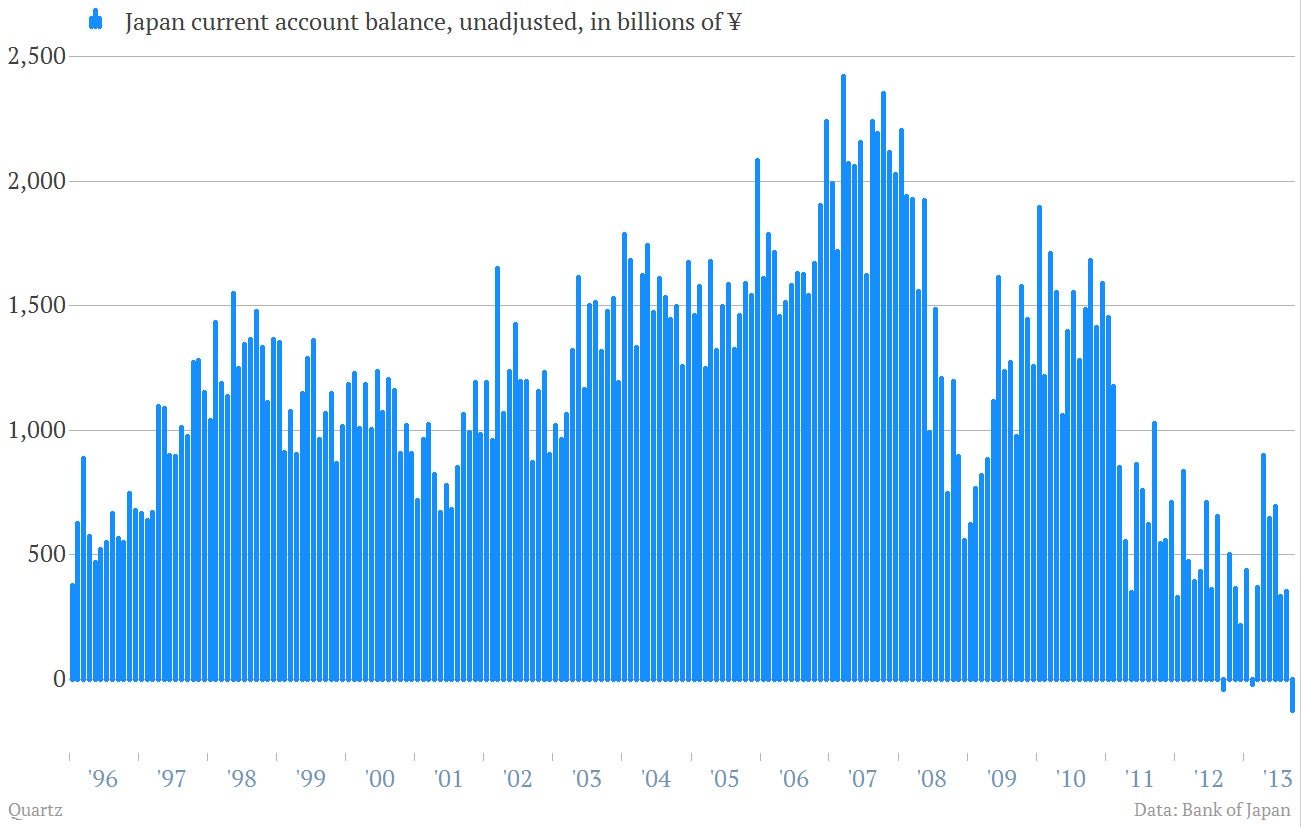Abenomics still isn’t the magic bullet for Japan
If Japan is going to manage its national debt of more than a quadrillion yen, it really needs to run a current-account surplus. (The current account is the broadest measure of the balance of what the country buys from abroad and sells to foreigners, encompassing not only shipments of goods but financial payments. And for a, slow-growth, export-oriented economy like Japan, a current account surplus remains a key to convincing the markets that the nation will be able to bring in the foreign currency it needs to pay off bondholders.)


If Japan is going to manage its national debt of more than a quadrillion yen, it really needs to run a current-account surplus. (The current account is the broadest measure of the balance of what the country buys from abroad and sells to foreigners, encompassing not only shipments of goods but financial payments. And for a, slow-growth, export-oriented economy like Japan, a current account surplus remains a key to convincing the markets that the nation will be able to bring in the foreign currency it needs to pay off bondholders.)
So, ostensibly, today’s update on the country’s balance of payments looks like pretty decent news. The country’s current-account surplus in September rose 14% from the same month in 2012, to ¥587 billion ($5.9 billion.)

But there are signs of trouble. For instance, the above numbers are seasonally-adjusted. The unadjusted numbers show Japan’s current account to be in deficit.

In fact, September was only the third time on record—data goes back to 1996—when the unadjusted balance of payements went into deficit. And it was the largest.

The main problem Japan has is its trade balance. The rapid weakening of the yen—a key component of prime minister Shinzo Abe’s new economic policy push, dubbed Abenomics—was suppose to boost exports and help get the country’s trade balance back into solid surplus. But the weak yen also raises the costs of energy imports Japan relies on (and has relied on ever increasingly since the the Fukushima nuclear disaster.) As a result, the trade deficit remains in a trough, dragging down the country’s current account balance and contributing little toward the country’s ability to service its debt.
Abenomics has clearly done good things or Japan. But when it comes to boosting the country’s trade balance, it hasn’t exactly been a magic bullet.